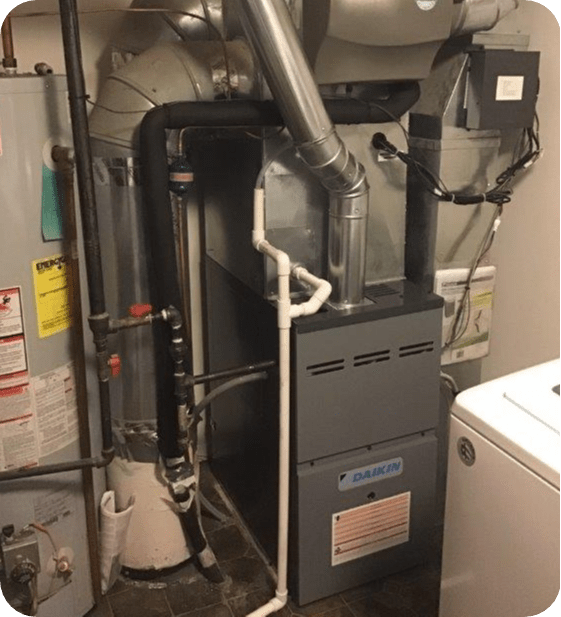What is Dual Fuel Heating?
 In our part of the country, here around East Dundee IL, we definitely see all four seasons. And while the average low temperature in January is 150F, we do occasionally see some pretty cold temperatures, even temps below zero from time to time.
In our part of the country, here around East Dundee IL, we definitely see all four seasons. And while the average low temperature in January is 150F, we do occasionally see some pretty cold temperatures, even temps below zero from time to time.
As an HVAC contractor, we want to recommend the most efficient systems possible to our customers- ones that do the job of keeping your home comfortable year round, but also are as fuel-efficient as possible, to keep the cost of operation and maintenance low- meaning lower monthly bills for you. That’s one of the reasons we have been recommending dual fuel heating systems more and more over the years.
A dual fuel heating system combines two types of heating technologies, typically a heat pump and a furnace (often gas or oil). This hybrid approach provides energy efficiency, versatility, and reliable comfort in varying weather conditions. For example, we have installed many Daikin VRV Life systems, that offer the incredible benefits of heat pumps, but also have the back up furnace available for the very cold weather, when heat pump efficiency goes down.
How Do Dual Fuel Systems Work?
Dual fuel systems combine a heat pump and a furnace together. The Heat pump provides energy-efficient heating and cooling by transferring heat between your home and the outdoors. It’s highly efficient in moderate temperatures. A furnace is added to take over when outdoor temperatures drop too low for the heat pump to operate efficiently. Furnaces use fuel like natural gas, propane, or oil to produce heat.
Dual fuel heating systems include a thermostat or control module that automatically switches between the heat pump and the furnace based on the outdoor temperature.
Why Consider A Dual Fuel System?
- Dual Fuel Systems are Energy Efficient: Heat pumps are highly efficient for heating in mild weather, reducing overall energy costs.
- Dual fuel systems increase comfort: The furnace using more traditional fuel like oil or gas ensures reliable heating in extreme cold, when heat pumps are less effective.
- Dual fuel systems save money: Combining technologies reduces the need to rely solely on expensive fuel-based heating.
- Dual Systems are more environmentally-friendly: Heat pumps often use electricity, which can be sourced from renewable energy, making the system more eco-friendly.
Maintenance
Regular maintenance is essential for any HVAC system, but you should have regular maintenance on both the heat pump and the furnace to clean filters and check connections. You should also schedule annual inspections for each system, and these maintenance steps help preserve your warranty as well. And as with any HVAC system, regular maintenance helps ensure longevity of your system and will keep it functioning at high efficiency.
Factors to Consider Before Installation
- Home Size and Layout: Ensure the system is sized appropriately for your home.
- Fuel Availability: Check availability and cost of natural gas, propane, or oil in your area.
- Electric Rates: Consider your local electricity rates for heat pump operation.
- System Compatibility: Ensure your existing ductwork and thermostat support a dual fuel setup.
Bottom Line
If you have natural gas, oil or propane available, a dual fuel system might be a great option for your home. You can get all the benefits of a heat pump, providing heating and cooling for your home, and get the extra warmth and security of having a back up for when we get that rare cold weather snap.
If you are considering a replacement for an aging HVAC system, give us a call here at Compass heating and air. We can help you find the perfect system for your home, and it may be that a dual fuel system may help you save money!



